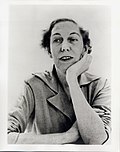Plot
On the Fourth of July in China Grove, Mississippi, Sister, the narrator, who is also a protagonist, begins her story when her younger sister, Stella-Rondo, comes back home after separating from her husband – Mr. Whitaker. Stella brings with her a child, Shirley-T. and despite a great resemblance to Papa-Daddy (grandfather of Sister and Stella-Rondo) she claims the girl is adopted. Sister does not believe her and that begins a series of quarrels between the siblings, whose relationship has been tough since Stella caused Sister's and Mr. Whitaker's breakup and married the man. Later that day, Stella lies to Papa-Daddy about Sister suggesting that he should shave his beard, to which he is very devoted. That causes a tension between him and his granddaughter. Then Uncle Rondo enters the house and borrows Stella's negligee, which makes her comment upon his look to Sister. A while later the sisters have another argument concerning Shirley-T. – Sister claims that the girl cannot speak, which angers Stella and also makes Mama upset. Mother even suggests that Sister should apologize to Stella, but she refuses and quarrels with Mama. As a result, Stella convinces Uncle Rondo that Sister suggested that he looks like a fool in her pink kimono. This lie aggravates the uncle; he believes that Sister really vilified him and that makes him mad at her. As everyone in the house is angry with Sister because of Stella-Rondo's lies, she leaves her home and moves to the post office, where she works. [3]
This page is based on this
Wikipedia article Text is available under the
CC BY-SA 4.0 license; additional terms may apply.
Images, videos and audio are available under their respective licenses.

